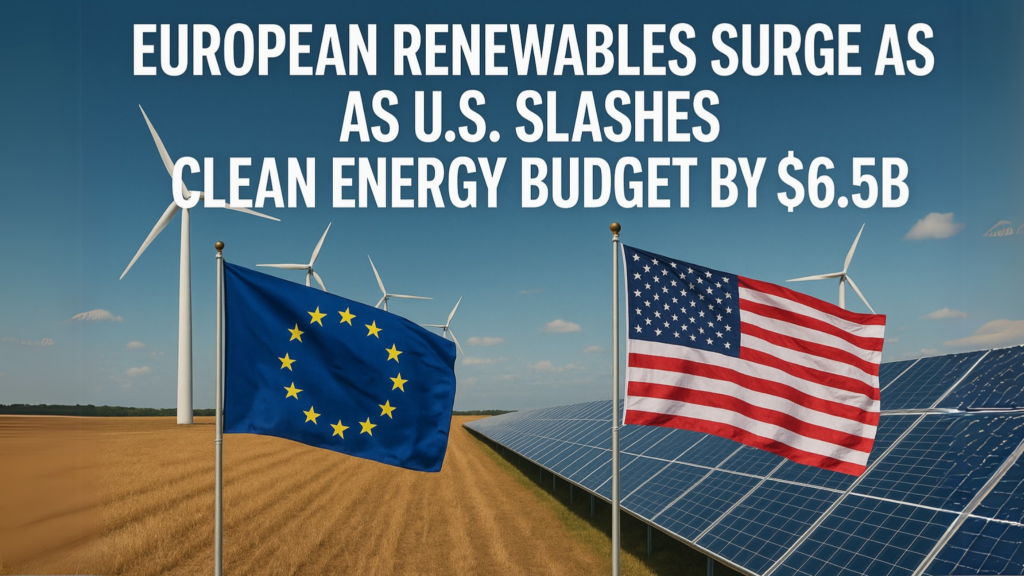Shares of major European renewable energy companies climbed Tuesday as U.S. lawmakers revealed a scaled-back proposal to cut clean energy subsidies. The rally followed investor relief that the proposed budget changes, while substantial, were less aggressive than anticipated.
On Monday, the U.S. House of Representatives introduced plans to eliminate key portions of the Inflation Reduction Act (IRA)—a cornerstone of the Biden administration’s clean energy agenda. The Energy and Commerce Committee’s proposal aims to raise $6.5 billion by phasing out tax credits and subsidies for wind, solar, and other green energy sources.
Still, financial markets reacted with optimism. The muted scope of these proposed cuts, especially for solar and energy storage sectors, appeared to cushion concerns over U.S. policy risks, particularly for European firms with American exposure.
Key Tax Credit Reductions Detailed
Several tax credits face a phase-out under the proposed plan, most notably the technology-neutral 45Y credit that has underpinned clean energy investments.
Key measures under the proposal:
- 45Y credits drop from 80% in 2029 to 0% after 2031
- EV purchase credits and home energy efficiency incentives eliminated
- Most IRA-related clean energy subsidies sunset by 2031
These tax revisions, part of a broader fiscal strategy under President Donald Trump’s multi-trillion dollar budget proposal, mark a shift in Washington’s energy investment posture.
Still, BMO Capital Markets analysts noted the proposed rollback was “much better than anticipated,” particularly for solar and battery storage firms. RBC Capital Markets echoed the sentiment, stating the wind sector may face more pressure but has avoided worst-case outcomes.
European Stocks React Positively
European renewable energy firms saw strong gains in early Tuesday trading as investors recalibrated expectations.
Notable performers:
- Vestas Wind Systems (CSE:VWS): +3.2%
- Orsted (CSE:ORSTED): +2.5%
- EDP Renovaveis (ELI:EDPR): +1.9%
- Acciona Energia (BME:ANE): +2.1%
Analysts suggest the less-drastic nature of the U.S. plan could help maintain global investment flows into renewables, especially from firms with diversified market strategies.
In summary, the proposed $6.5 billion in U.S. clean energy cuts initially stirred concern, but more modest implementation has steadied markets. European renewable energy firms appear poised to benefit from investor recalibration and continued global demand for green infrastructure.
Would you like this article formatted for web publication or distributed as part of a newsletter?


